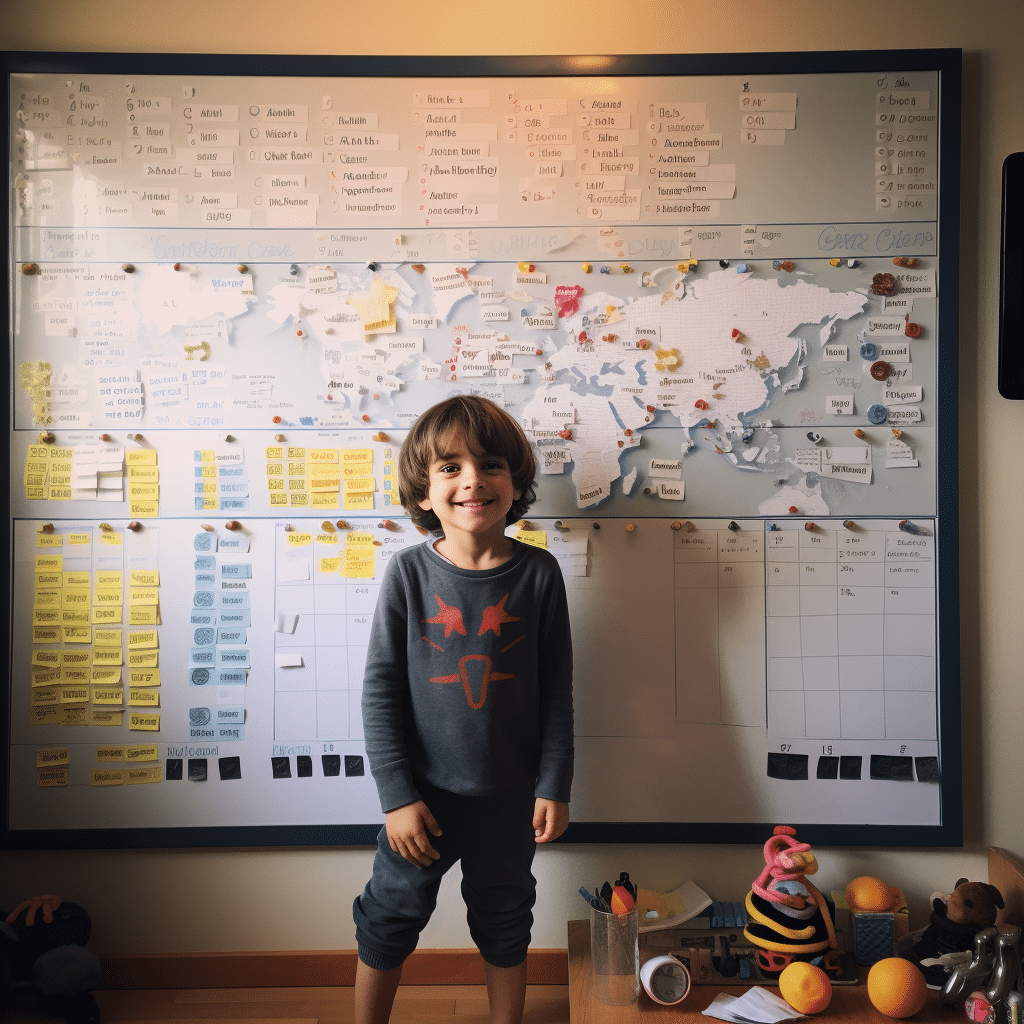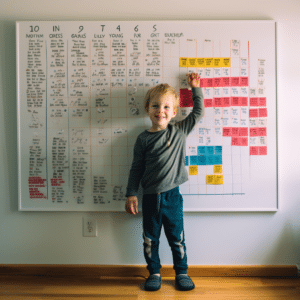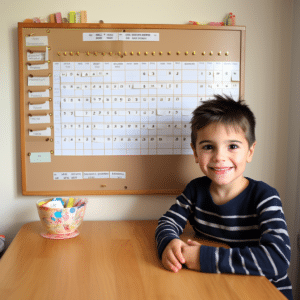
Creating a 4-Year-Old’s Daily Schedule: Tips and Sample
A typical day for most preschool-aged children can be hectic. There is more to do at home or in a daycare facility than just playing. At four years old, your child’s schedule can vary depending on their interests, family routines, and the days of the week.
A well-thought-out daily schedule for a 4-year-old will be the key to your child’s well-being. To make it easy for parents to follow their child’s daily schedule, we have made a template of a typical day in the life of a four-year-old.
The ideas in this article will help you create a daily schedule that is easy to follow and geared towards the best outcome – your child’s happiness!

Daily Schedule Breakdown for a 4-Year-Old
A 4-year-old’s daily schedule is filled with many activities. From school and play to meals and bedtime, 4-year-old experiences many new things each day. The following is a daily sample schedule for a 4-year-old:
7 AM – Wake Up
The average wake-up time for a 4-year-old is 7:00 AM. They will likely be up and ready to go before this time, but it’s important that you don’t let them get out of bed too soon. The key is ensuring that your child gets enough sleep to have enough energy for the day.
8 AM – Breakfast
At breakfast time, offer your child a balanced meal with protein, carbohydrates, and healthy fats in addition to fruits and vegetables. Ensure their diet has enough fiber to prevent common defects like constipation.
9:00- 11 AM- Playtime!
Ensure your child has plenty of opportunities to run around or play quietly with toys during this time. Be sure it isn’t too hot outside or that there isn’t too much noise from other children playing nearby (for example, at a friend’s house).
12 PM Lunch
Have your child eat a healthy lunch at noon. If your child needs a snack, try to give him one around 11:30 or noon. You can also have them drink water after meals if they’re thirsty.
Your child’s lunch should be a balanced meal with various healthy foods, such as lean meats and vegetables, whole grains, and fruits. Similarly, it should be eaten at the same time every day so the kid can learn to stick to the routine.
2 PM – Snack
A 4-year-old will probably be hungry after their lunch and, therefore, may need a snack after lunch. And this snack can be anything from fruit to yogurt and crackers or even something as simple as an apple with peanut butter!
3 PM -Afternoon Nap
Your child will reach their peak activity level during this time of day. They are still tired from the day’s events but just beginning to feel ready for some snuggles and a little rest.
It’s therefore important to ensure that your child gets enough rest so they’re not overtired and cranky. They’ll need a nap if they’ve been awake all day.
Remember that the afternoon nap should be taken at the same time each day so that it does not interfere with your child’s sleep schedule.
6 PM – Dinner
Your child will be hungry by now, so make sure you have prepared a healthy and nutritious dinner. Similarly, you should ensure that it is not just any ordinary meal but something that will keep your child full for several hours.
7 PM – Bedtime
Bedtime is a time to wind down, calm down and get ready for sleep. Even if your child is not tired, they need to be in bed before they drop off to sleep. The goal is to ensure they are not overtired and that their body can fully relax and prepare for a good night’s sleep.
Ultimately, the most important thing to remember about daily schedules is that there is no one-size-fits-all approach. The best way to find the schedule that works for your child is to create a customized plan that incorporates all of his or her needs.
Tips When Creating a Daily Routine for Your Toddler
A good way to help your toddler develop their sense of independence is by creating a daily routine with them. This will give your toddler a sense of security, which will be beneficial in the long run.
Here are some tips on how you can create a daily routine for your toddler:
Keep It Simple
Avoid over-complicating things by adding too many activities or toys into your child’s daily routine. It’s good practice for him as he grows up. Still, if he becomes too overwhelmed with things around him, he may become frustrated, negatively affecting his behavior towards other people who are trying their best to help him learn new things.
Keep It Short and Sweet
It’s hard to keep up with everything you want to do with your kids! Don’t make it any harder on yourself by trying to squeeze in extra errands or work that doesn’t involve your child.
Your child may seem happy when he gets home from school but quickly become restless if there’s too much time between activities. Make sure each activity is something they enjoy so they’ll look forward to it all day long!
Keep It Age-appropriate Yet Fun!
Your child will learn more when she can see the results of her efforts rather than just general concepts. The best way to do this is by incorporating games into your daily routine, so they don’t feel like working!
Games also help keep your toddler entertained while running errands or doing other tasks around the house.
Be Consistent
Creating a routine means sticking to it daily, even when things get hectic because of other obligations like work or sleep schedules. It’s important to remember this when creating your plan because if you skip or change something at least once per week, your child may not stick with the plan as much as they should.
Make It Predictable
This way, your little one knows when certain activities are coming up and can prepare for them accordingly (like brushing teeth).

Bottom Line
As you can see, no one schedule will be suitable for all kids. Different activities and playtime will vary a great deal depending on the child. This is because different age levels will want or need to do different things at different times of the day.
All in all, 4-Year-Old Daily Schedule child needs sufficient rest, warm meals, and physical exercise to build and maintain their health. A daily routine of this type will discourage your child from being bored and frustrated.